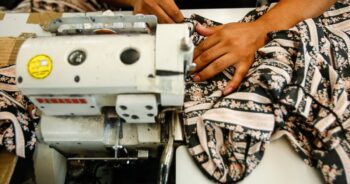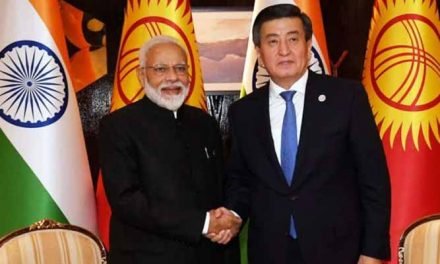 The majority of garment manufacturers which had been refusing to pay their workers the minimum wage since April 2020 in the Indian State of Karnataka have finally agreed to pay up. The Worker Rights Consortum (WRC) says that it has received confirmation – either from the factories, brands or workers – that 15 of the 17 companies have finally committed to pay the legal rate.
The majority of garment manufacturers which had been refusing to pay their workers the minimum wage since April 2020 in the Indian State of Karnataka have finally agreed to pay up. The Worker Rights Consortum (WRC) says that it has received confirmation – either from the factories, brands or workers – that 15 of the 17 companies have finally committed to pay the legal rate.
The WRC – which had described the case as the “most egregious act of wage theft we’ve ever seen” – says 14 of the 15 have also agreed to promptly pay workers the arrears they are owed.
The other company, Go Go International, has also agreed to pay workers the arrears but in installments which means they won’t receive all of their money until the middle of next year.
It means that only two companies – FFI Global (Jeans Knit), which has five factories, and Creative Group, which has three factories – are still refusing to pay workers the hike in the minimum wage.
FFI Global supplies G-Star, Kontoor Brands (including Wrangler and Lee), and VF Corp (The North Face, Timberland and Vans), while Creative Group supplies C&A and Matalan.
The WRC says the manufacturers which have now agreed to pay up were responsible for around $28.6 mn of the $58.7 mn owed to more than 400,000 garment workers in Karnataka.
“After 22 months of refusing to do so, 14 major Karnataka garment suppliers have finally committed to pay the legal minimum wage, along with all arrears owed, to their workers; however, some suppliers are still refusing to pay,” said WRC in a statement.
“Allowing for factories whose commitments have not yet been reported to us, we estimate the total committed represents well over half of the total owed. Verification is ongoing to ensure all workers receive the full amount they are owed. The WRC will work to hold suppliers and brands accountable for any underpayments.”
Karnataka is one of the hubs of India’s garment industry with thousands of factories producing clothing for brands and retailers including Puma, Nike, Zara, Tesco, C&A, Gap, Marks & Spencer and H&M.
Last month saw a key breakthrough in the dispute when India’s largest garment manufacturer, Shahi Exports, announced it would immediately begin paying its 80,000 employees in Karnataka the correct minimum wage.
The dispute centered on an annual cost of living increase to the minimum wage, the ‘variable dearness allowance’ (VDA), which was increased by 418 Indian rupees (US$5.50) per month – 21 US cents a day – in April 2020 but which had not been honoured.
Garment suppliers argued that the Ministry of Labour and Employment had suspended the increase shortly after it was implemented and that a legal dispute over the requirement to pay it was still progressing through the courts.
However, in September last year, the Karnataka High Court ruled that the Labour Ministry’s proclamation was illegal and that the minimum wage, including all arrears, should be paid to workers regardless of any other court proceedings. Leading brands, including Puma, Nike, Gap, Tesco, C&A, Marks & Spencer and H&M, previously insisted they were committed to paying the legal minimum wage and expected their suppliers to comply.





















